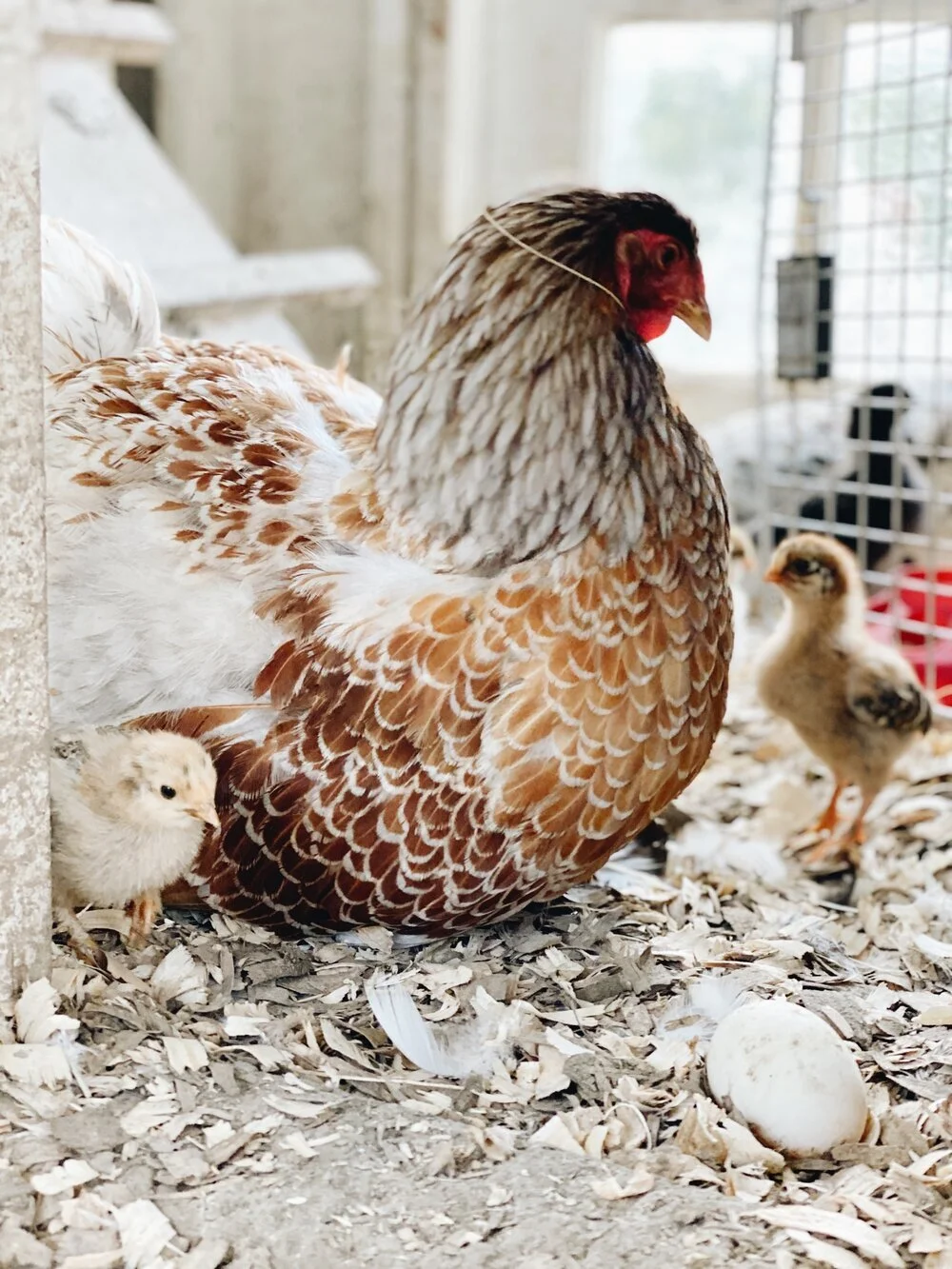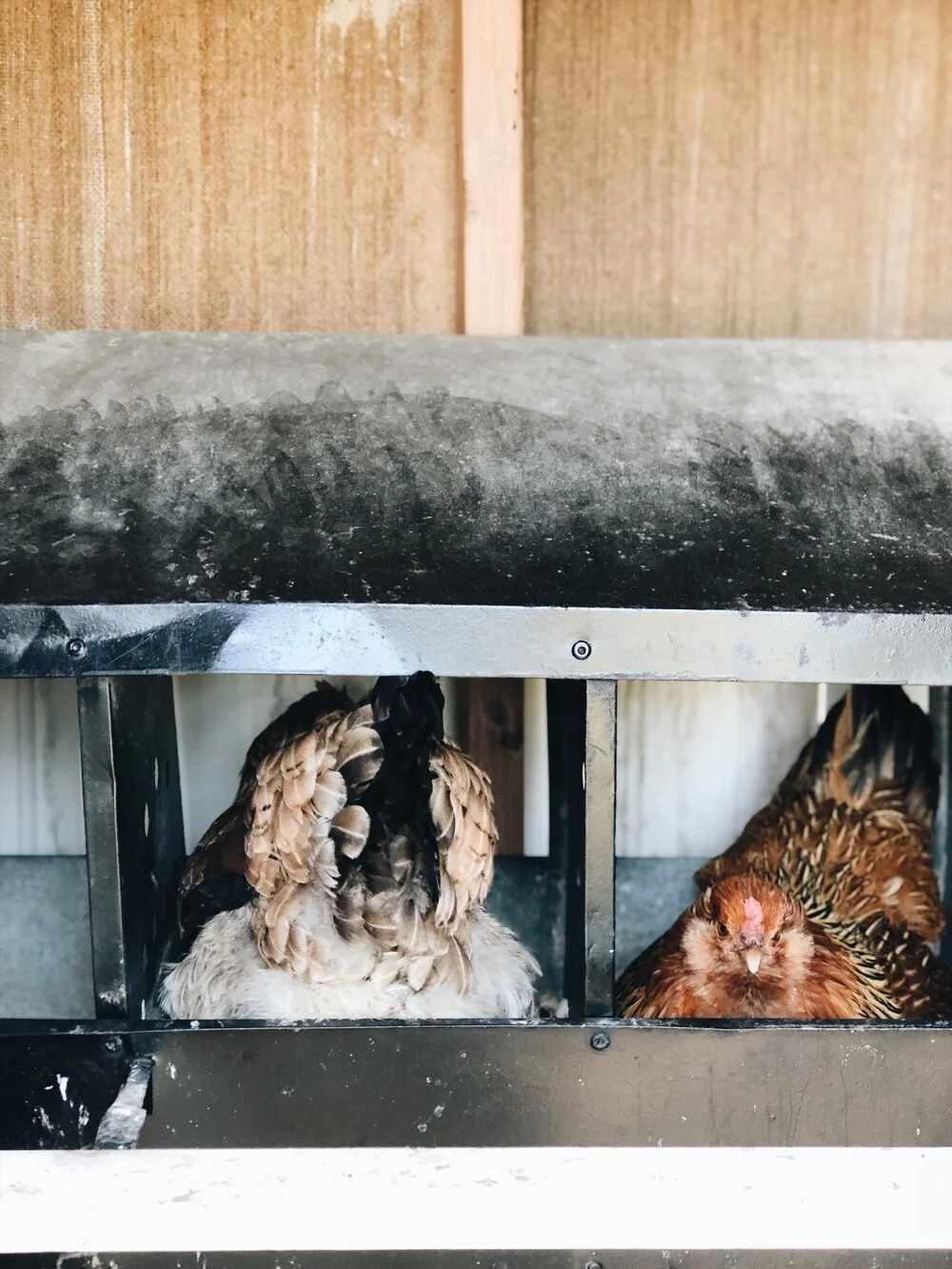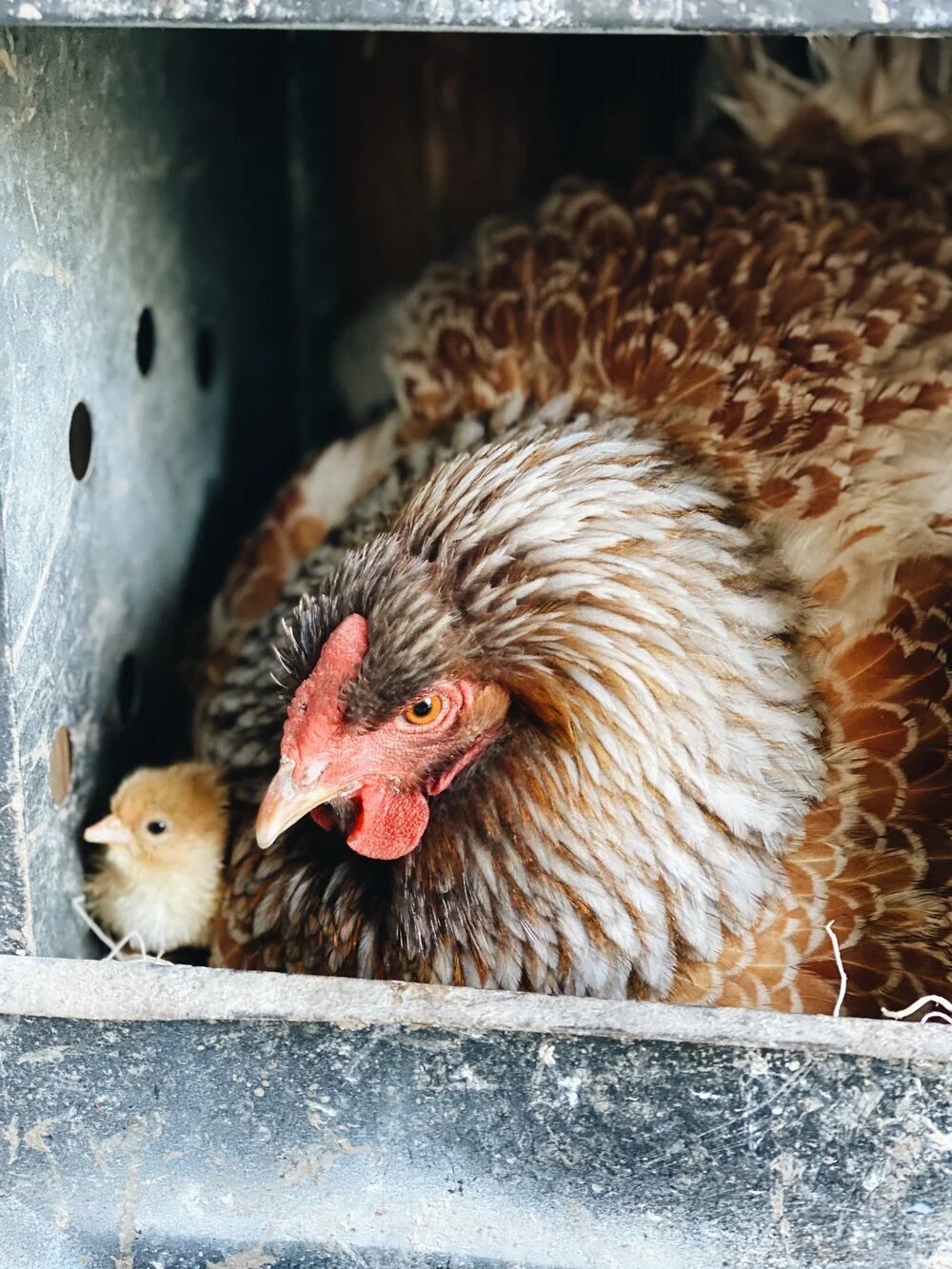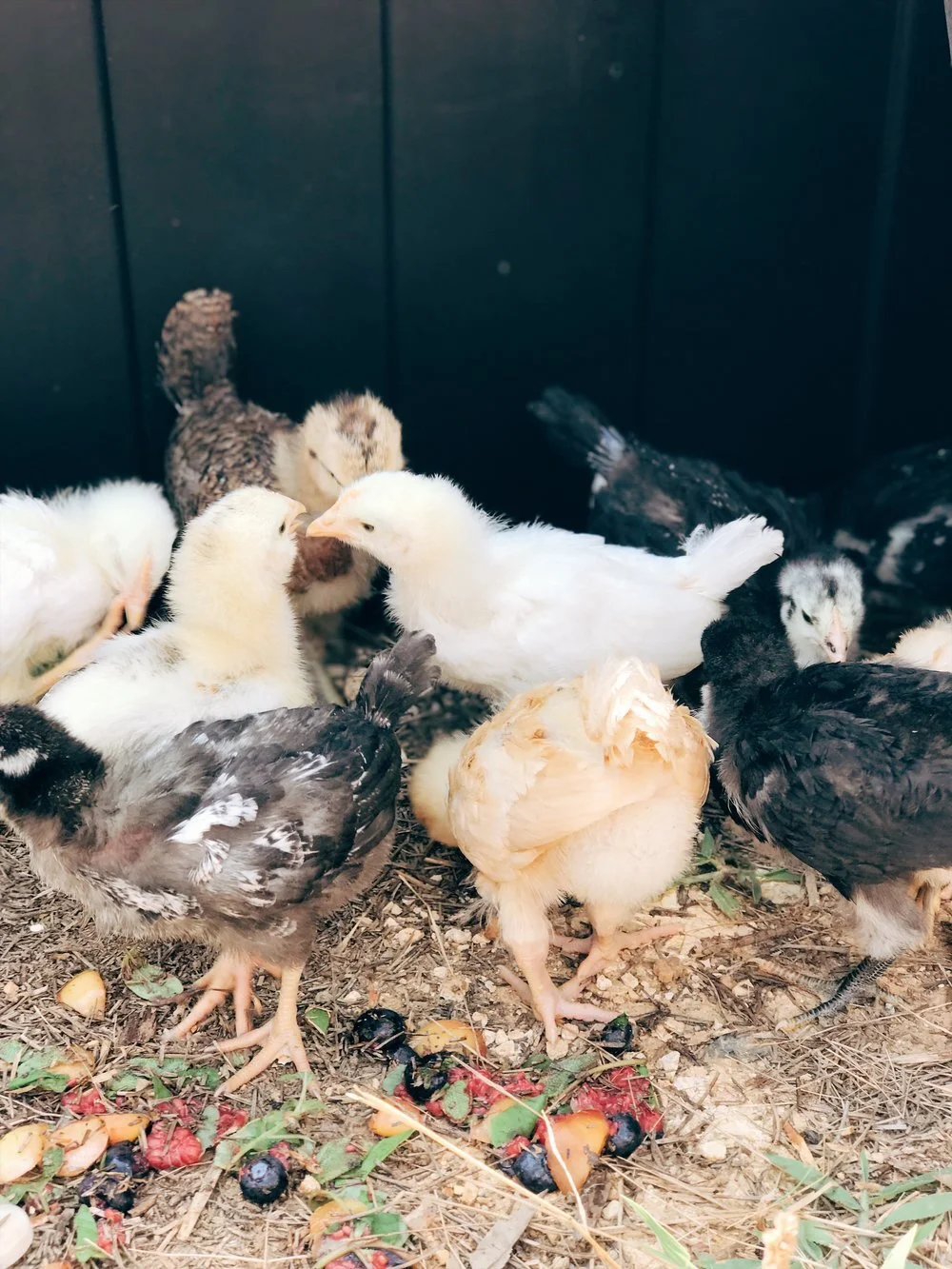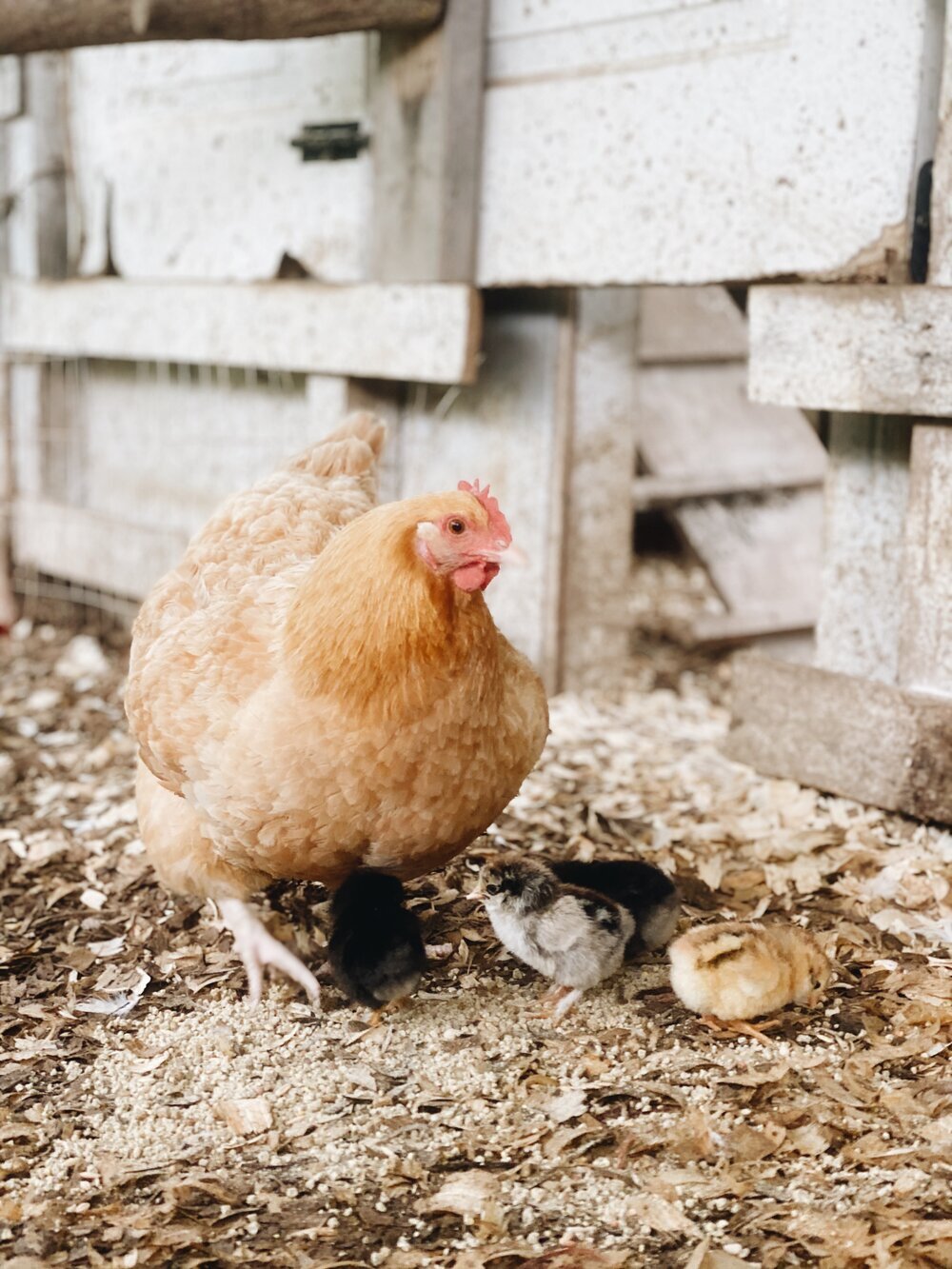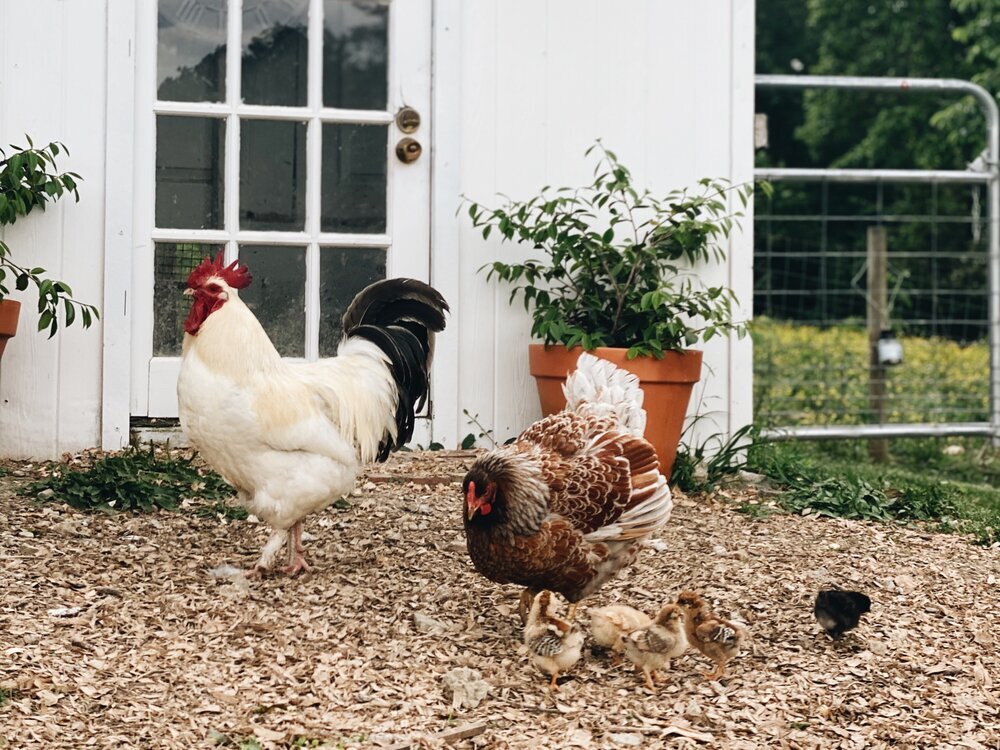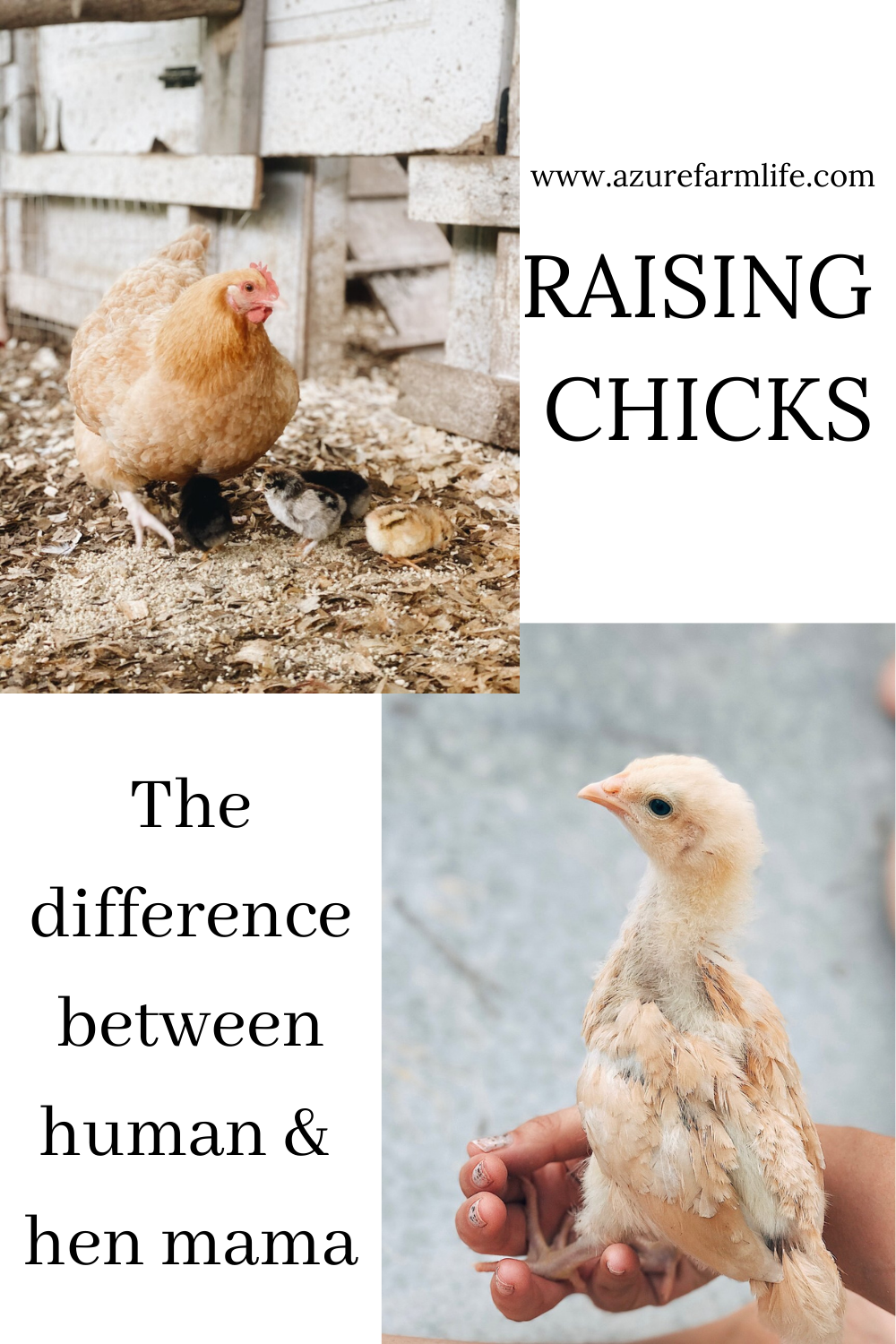How to Care for Baby Chickens; Human vs. Hen Mama Comparison
In 2018 we got our first batch of chicks, ordered through the mail! They were only 3 days old when they arrived, and oh my, they were adorable! Who can resist a baby animal?? I don't think there is anything cuter! I must admit, the first 4 weeks of caring for baby chickens were hard.
We often forget that these cuties, no matter which animal, need to be raised and cared for just like their mama would have, or at least as close as possible. They need a lot of attention and care, and it takes hard work and effort.
So if you want to start breeding and keeping chickens, you may want to consider buying grown hens and let mother nature takes its course. Mama hens raising their chicks is obviously the most natural and best way.
But, perhaps you want to raise chicks yourself so they will have a closer bond with you and be more accustomed to you and your voice when they are grown. Or maybe you are just starting out with your first flock.
Sort of like a chicken-egg situation...
I have experience with both these scenarios and can honestly say in the end, mama hen always wins! Let's break it down!
BROODER SPACE
Human Mama:
Before your chicks arrive, you have to make sure they have a comfortable brooding area. Great options include a plastic container, wood box, galvanized tank, or child's wading pool, where they will be kept for up to 4/5 weeks.
Cover the brooder base with nesting material such as newspaper and kitchen towels for the first few days, and after that, use pine shavings.
Keep in mind, chicks make a lot of mess, pooping everywhere! So you need to clean out the brooder and replace the pine shavings often. I would clean mine at least 3 times a week, otherwise, it could lead to dangerous diseases.
For this reason, I bought a smaller container to hold the chicks temporarily while I clean the bigger tub. Be a neat freak!
Hen Mama:
The hen will brood on her eggs in nesting boxes you have provided or whichever designated area you have available for your chickens. It's best to have one nesting box available for every 4-6 hens. You can also offer a smaller broody henhouse/ coop, which should include sleeping quarters and a run.
The structure should be sturdy enough to keep out large and small predators and keep in the chicks. Ensure the nesting areas are in a dark, quiet area of the coop and are regularly stocked with fresh pine shavings or straw. When keeping it fluffy, you encourage the hens to lay their eggs and brood there and not somewhere else.
HEAT AND LIGHTING
Human Mama:
Heat is crucial in the first few weeks of a chick's life. You will need to install a heat lamp over their brooder to ensure sufficient heat. The brooding temp should start at 90 degrees Fahrenheit, and then you can lower it every week by 5 degrees Fahrenheit. After 5 weeks, you can maintain an average temp of 70 degrees Fahrenheit.
Hang a thermometer in your box so you can always keep an eye on the temps and let the chicks guide you. If they are all huddled in a bundle or sit right under the lamp, your temperature is too cold. And if they pant and shy away from the light, it is too hot. Always ensure you have a backup lamp to ensure the chicks never go without heat.
Chicks also need to rest and learn when to sleep at night. Therefore they should have continuous lighting for the first 48 hours, but after this, they need 8 hours of darkness per day to set their sleeping clock. In this case, a red heat lamp will work best.
Hen Mama:
No external heating options are needed. Mama's feathers are enough! Even in winter, I won't have any heat sources near the nesting boxes.
Most of the time, chickens will lay their eggs, and hatching will occur in Spring, so the outside temps are already good enough for baby chicks. If they are cold, they will quickly jump on mom and find a nice little hiding spot under her warm feathers.
FEED AND WATER NEEDS
Human Mama:
The very first thing that your baby chicks need is water! After their trip to your home, they would be very dehydrated.
Interesting fact: Just before chicks hatch, the egg yolk is absorbed in their bodies, providing enough nourishment for up to 48 hours.
But after this, you will need to give them water immediately. You will need to dip their beaks into the water troughs so they can learn to drink water. It's a great idea to add electrolytes and probiotics to the water for an extra boost and hydration.
Use shallow waterers or add pebbles to the bases to prevent the chicks from falling in and drowning. Change the water two times a day.
Put your waterers on wood blocks or tiles to prevent the bedding from getting wet. This produces an ammonia-like smell which can damage the chicks' lungs.
From 0 - 6 weeks, chicks need to eat starter feed formulated explicitly for baby chicks that offer proper nutrition and are processed fine enough for their beaks. Don't skimp on good started feed, as it can be detrimental if inadequate nutrition is given in the growing stages and can lead to serious health problems and deficiencies.
Weeks 6 - 18, you will need to feed them commercial grower feed and can supplement their diet with treats such as fresh grass cuttings, shredded lettuce, and table scraps that are safe for chickens.
From week 18, they can eat regular layer feed like all your other chickens. You also need to provide chick grit to your chicks to help their digestive system once they start eating treats, different food, and forage in the yard.
Hen Mama:
Once mama hen feels that hatching is completed, she will lead them out into the run and will start to teach her babies immediately how to source food and drink water.
She will guide and reassure them by making unique cluck sounds. When she scratches in leaves or dirt, revealing food, she'll give a special higher-pitched cluck that means, "Come here and eat, kids." This way, chicks will quickly learn how to forage for themselves.
You still need to provide chick starter feed, grit, and treats to fulfill dietary requirements according to the weeks mentioned above.
Yummy treats you can give to your chicks include oyster shells to provide extra calcium (only when they are older), a cabbage head will provide fun and entertainment, and cooked eggs will amp up their protein intake.
Chickens can eat most table scraps but need to be kept to a minimum to avoid overeating, getting overweight, and being spoiled.
I often make delicious frozen summer treats for my flock on a hot summer's day. Get the recipe HERE.
Place your chicken feeders and drinkers all over the run, away from the nesting and sleeping areas, to avoid spoilage. Ensure that it is accessible for the chicks, and keep chick starter feed away from mature birds.
Make sure they always have fresh, clean water.
INTEGRATING WITH THE FLOCK
Human Mama:
By week 5/6, you should move the chicks to their outdoor coop. The ideal would be to have a small enclosure and run inside the grazing area of your current flock. This way, the chickens can see and get used to each other without being able to have physical contact. You can also have them grazing in separate areas next to each other but fenced off. I would advise to this for at least 10 days.
Around week 7/8, you can take the plunge and let them start to mingle! My tip here would be to stand by for a while to keep an eye on the situation and feed the flocks some treats to keep them occupied and not bothered. Introduce them together for a few hours for a couple days as they play and run around. When you officially put them together do so at night. This seems to work best.
There might be some jostling as they establish the new pecking order. This is totally normal.
I have an entire blog post HERE on integrating baby and new chicks with your current flock.
Hen Mama:
For the first two to three days, I would keep my hen and her chicks in a separate area like a big dog cage or a small coop. After this, I open up and let them integrate with the flock.
The mama is very protective, so she will keep a close eye on her babies and not let the others get to them. Her manners, cluck, and natural mother instincts will guide the chicks in their first few weeks.
When the chicks are about 8 - 10 weeks old and have put on enough weight, she will decide if their time has come to spread their wings and go out into the big wide world by themselves! Many of our mama hens have let their little ones run free around 6-7 weeks old. By this time she has taught them enough to brave the world on their own.
CARING FOR BABY CHICKENS - EXTRA TIPS
Always wash your hands before you touch the chicks. Their immune systems are not fully developed yet.
Let the chicks eat from your palm so they can learn to trust you and to accept treats from you.
It's also a great idea to use a repetitive phrase or saying every time you feed and give them treats. They will associate this phrase with treats and will always come running to you! This is a clever way to get them to their coop when it's bedtime.
When you are raising the chicks, spend as much time as possible with them in the first 6 weeks to create a strong bond and make them feel safe.
In the first few weeks, check your chicks' butts! Sometimes, they get "pasty butts," which happens when their vents are clocked with dried poop. Gently clean with a washcloth or cotton swab.
I wrote an entire blog post HERE on raising baby chickens week by week.
As you can see, when you have a mama hen raising her own chicks, it is a much more natural process and less work for you!
It is ideal, as the chicks learn very early on how to care for themselves, how to forage, to dust, and so on. They tend to thrive better earlier on, they feather more quickly and learn flock and pecking behavior at an earlier stage as opposed to the human-raised chicks. Their survival instincts are also stronger.
This is not to say that human-raised chicks are worse off. They might just take longer to adapt and learn all the applicable chicken behavior and skills. They will also tend to friendlier and attached towards you as they see you as their mom.
Your hen-raised chickens, on the other hand, may be more independent, just like a true wild child!
Love, Annette xxx
PIN FOR LATER

